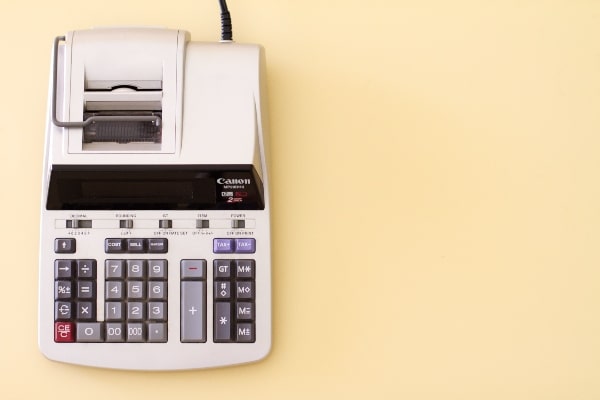Here at MJJ Accounting on the Sunshine Coast, we strive to simplify the tax return process for our clients, by letting them know which information they will need to provide when engaging us to prepare their tax returns. The checklist below outlines the information you should include in your tax returns. We have also outlined income and expenses, which, if apply to you, you will need to disclose when lodging your tax return with the Australian Taxation Office (ATO).
Income
- Gross salary, wages, earnings, allowances, benefits, tips and directors’ fees as per the Pay As You Go (PAYG) payment summary
- Taxable Government allowances or pensions, such as the Job Seeker payment, Youth Allowance or Age Pension
- Details of any capital gains or losses incurred from the sale of, or dealings involving capital gains tax assets (such as shares or property).
- Lump sum and termination payments
- Annuities or other pensions, such as account-based pensions, as per PAYG Payment Summary or statements,
- Rent received from investment properties as per real estate agent statement or other records
- Details of any foreign source income, including overseas pensions earned or received, foreign assets held, and any foreign taxes paid.
- Interest earned as per your bank
- Dividends received or reinvested
- Distributions from partnerships and trusts, including managed funds
Expenses
- Motor vehicle expenses for work-related travel in a personal vehicle, including the work-related kilometres travelled
- Overtime meal allowance (if paid under an award)
- Work-related expenses that have not already been reimbursed
- Journals, subscriptions, books, and professional library expenses
- Deductible work from home expenses
- Other work-related travel expenses, such as public transport, tolls and taxis.
- Purchase of tools or equipment for work related purposes
- Travel and attendance fees for work-related conferences, conventions, and seminars.
- Telephone expenses for work related phone calls
- Self-education expenses, such as parking, stationery, fees, books and travel.
- Union fees and memberships to industry and professional organisations
- Set up expenses for home office, such as depreciation on equipment purchase, including furniture, phones and computers.
- Details of home office expenses such as lighting, cleaning, heating and cooling.
- Purchase of compulsory uniforms, protective clothing, and laundry costs for work related purposes
- Sun protection, hats, sunglasses, and sunscreen (If you require this at work)
General expenses
- Tax preparation fees, including travel
- Donations of $2 or more
Deductions for work from home expenses, due to COVID19
If you are working from home because of COVID19 and have incurred expenses that are not reimbursed by your employer, you may be able to claim them as a tax deduction. The expenses must be directly related to working from home and a record must be kept of your working hours and expenses. There are three ways to calculate your WFH expenses:
- Shortcut method
- A deduction of $0.80 for each hour worked from home (due to the virus) is permitted if you have incurred additional deductable running expenses
- Fixed rate method
- A rate of $0.52 per hour for the cost of cleaning, utilities, and depreciation of office furniture
- Work-related phone, internet, computer, and stationery expenses
- Work-related depreciation of devices such as a computer or laptop
- Actual cost method
- Claim the actual work-related portion of all running expenses
If your home is not your principal place of business, you may still be able to claim deductions. See the table below.
| Deductions you can claim | You have a work area | You do not have a work area |
| Gas and electricity | Yes | Yes |
| Work-related phone costs | Yes | Yes |
| Decline in value of office equipment and furniture | Yes | Yes |
| Decline in value of curtains, light fittings, and carpets | Yes | No |
| Occupancy expenses such as mortgage, rent, insurance and rates | No | No |
Private Health Insurance Offset
You may be eligible for a health insurance tax offset up to 33.4%, depending on your income and age. This will only apply if you have not already claimed a reduce premium from your health fund.
Personal deductable contributions
If you are eligible to contribute to super, you can make personal voluntary contributions and claim tax deductions up to your concessional contribution cap. Ensure you include this deduction in your tax return.
Why Should I Use an Accountant?
There are a number of benefits of utilising an accountant on the Sunshine Coast to prepare your Tax Return. Engaging an accountant to assist you in your financial affairs not only saves you time and allows you to focus on your business, it also means you have access to advice, strategies and knowledge which you otherwise may not have access to. Further, an accountant who knows you and your business can assist you greatly in future planning, organisation, prioritising, goal-setting, expense management and ultimately can remove the stress and anxiety that often comes with running a business and preparing your tax return. An accountant can help you stay focussed and see matters from a different perspective, which allows you to make more informed decisions. Many people find that having an accountant is also a fantastic way to expand your network and meet like-minded people in your industry who can provide valuable insight. Further, by keeping you informed and up to date, an accountant is a great way to avoid liabilities and penalties. We focus on the deadlines while you focus on your business and personal affairs!
Contact our office now on 07 5451 1118 if you have any further questions.

 07 5451 1118
07 5451 1118 







Comments are closed.